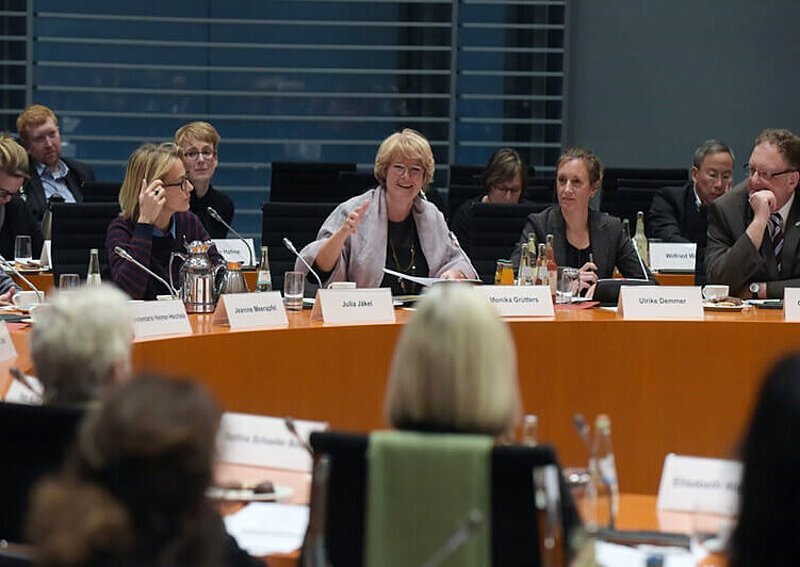
Survey shows Germany lags behind its European neighbours. Full study now also available in German.
Germany is still lagging behind its neighbours when it comes to women in culture and media, according to a comprehensive survey of the role of women in the arts, culture and media in selected European countries, carried out by the Hertie School under the academic direction of Helmut K. Anheier, and supported by the German government’s Commissioner for Culture and Media.
Only 22 percent of operational managers in Germany’s large media organisations are women, for example, below the EU average of 33 percent female executives. Germany's gender pay gap, in the arts and entertainment sector, is clearly above the average among the countries studied (29.8 percent in Germany / 19.4 percent on average for the countries studied). Pensions for German women also represent the largest gender-based difference among the countries studied (46 percent in Germany / 38 percent EU average).
The study "Gender equality in art, culture and the media: A European comparison" includes comparative information on the selected countries and concrete "best practice" examples. It also serves as valuable guidance for German policy and strategies for associations, media institutions and civil society. The study provides valuable insights for decision-makers in politics, business and society. A full version is also now available in German.
The findings were recently presented at a round table presentation with Monika Grütters, Germany’s State Minister for Culture and Media. “The study published today allows us to look outside the box and learn from the experiences of our neighbours,” says Minister Grütters. “We will now examine the study and its proposals in detail. I find it interesting to note that several of the countries studied created mentoring programmes. This shows that we are on the right track, for example, with the mentoring programme we have launched for artists.”
The study will also be discussed at a meeting of the newly-founded committee of the German Cultural Council on gender equality, one of the results of the round table.
More information is available in this press release by the German government’s Commissioner for Culture and the Media (in German).
